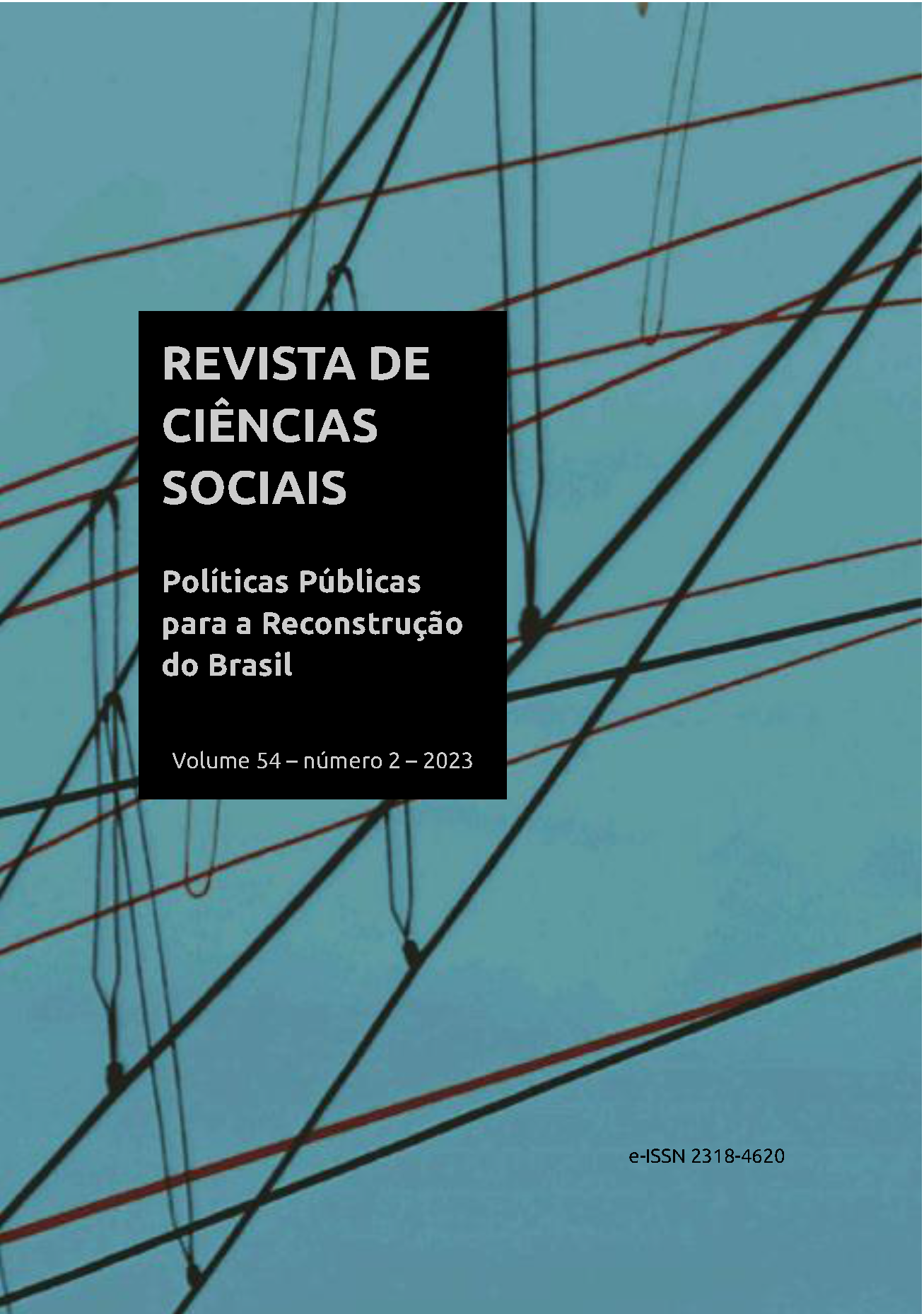Ars rhetorica in young Quentin Skinner
DOI:
https://doi.org/10.36517/rcs.54.2.a02Keywords:
political theory, Quentin Skinner, linguistic contextualism, ars rhetoricaAbstract
We suggest in this paper that rhetoric can be found in Quentin Skinner even in his early works, as, and mainly, in "Meaning and interpretation in the history of ideas". However, his presence there is as a way to persuade the public around the debate on the Skinnerian position on how to study the history of ideas. In this sense, rhetoric is present in that text in a practical way and not as an important element of analysis, as seen in his later work.
References
ARISTÓTELES. Retórica. Lisboa: Imprensa Nacional, 2005.
CHIPP, Herschel. Teorias da arte moderna. São Paulo: Martins Fontes, 1999.
CICERO, Marco Tulio. Do orador. In: SCATOLIN, Adriano. A invenção Do orador de Cícero: um estudo à luz de Ad Familiares I, 9, 23. Tese (Doutorado em Letras Clássicas) – FFLCH, Universidade de São Paulo, 2009.
ENGELS, Friedrich; MARX, Karl. Manifesto Comunista. São Paulo: Boitempo Editorial, 2010.
JASMIN, Marcelo. História dos conceitos e teoria política e social. Revista brasileira de ciências sociais, São Paulo, v.20, n. 57, fev. p. 27-38.
KANT, Immanuel. Crítica da razão pura. Rio de Janeiro: Vozes, 2012.
PALONEN, Karen. Quentin Skinner’s rethoric of conceptual change. History of human sciences, London, v.10, n.2, p. 61-80, abril/jun., 1997.
REBOUL, Olivier. Introdução à retórica. São Paulo: Martins Fontes, 2004.
RICHTER, Melvin. Reconstructing the history of political languages: Pocock, Skinner, and the Geschichtliche Grundbegriffe. History and Theory, Middletown, v.29, n.1, p. 38-70, fev. 1990.
SILVA, Ricardo. O contextualismo linguístico na história do pensamento político: Quentin Skinner e o debate metodológico contemporâneo. Dados, Rio de Janeiro, v. 53, n. 2, p. 299-335, maio/ago. 2010.
SKINNER, Quentin. As fundações do pensamento político moderno. São Paulo: Companhia das Letras, 1996.
SKINNER, Quentin. Entrevista a Maria Lúcia Pallares-Burke. In: PALLARES-BURKE, M. As muitas faces da história. São Paulo: Editora UNESP, 2002.
SKINNER, Quentin. Hobbes e a liberdade republicana. São Paulo: Editora UNESP, 2010.
SKINNER, Quentin. Quentin Skinner Interviewed by Alan Macfarlane (10th January). Disponível em: <https://www.repository.cam.ac.uk/bitstream/handle/1810/197060/skinner.txt?sequence=1&isAllowed=y>.Acesso em 20 jun. 2021.
SKINNER, Quentin. Liberdade antes do liberalismo. São Paulo: Editora UNESP, 1999.
SKINNER, Quentin. Meaning and understanding in the History of Ideas. History and Theory, Middletown, v. 8, n. 3, p. 3-53, jan./abril. 1969.
SKINNER, Quentin. Meaning and understanding in the History of Ideas. In: SKINNER, Q. Vision of politics, v.1: regarding method. Cambridge: Cambridge University Press, 2002a. p. 57-89.
SKINNER, Quentin. Moral ambiguity and the Renaissance art of eloquence. In: SKINNER, Q. Vision of politics, v.2: renaissance virtues. Cambridge: Cambridge University Press, 2004. p. 264-286.
SKINNER, Quentin. Moral principles and social change. In: SKINNER, Q. Vision of politics, v.1: regarding method. Cambridge: Cambridge University Press, 2002b. p. 145-158.
SKINNER, Quentin. Reason and rhetoric in the philosophy of Hobbes. Cambridge: Cambridge University Press, 1996b.
SKINNER, Quentin. Retrospect: studying rhetoric and conceptual change. In: SKINNER, Q. Vision of politics, v.1: regarding method. Cambridge: Cambridge University Press, 2002c. p. 175-188.
SKINNER, Quentin. Significado e interpretação na História das Ideias. Tempo & Argumento, Florianópolis, v. 9, n. 20, p. 358-399, jan./jul. 2017.
SKINNER, Quentin. The hermeneutics of conflict. In: TULLY, J. (org.), Meaning and Context: Quentin Skinner and his critics. Princeton: Princeton University Press, 1988. p. 218-231.
Downloads
Published
How to Cite
Issue
Section
License
Autores que publicam nesta revista concordam com os seguintes termos:- Autores mantém os direitos autorais e concedem à revista o direito de primeira publicação, com o trabalho simultaneamente licenciado sob a Creative Commons Attribution License, que permite o compartilhamento do trabalho com reconhecimento da autoria do trabalho e publicação inicial nesta revista.
- Autores têm autorização para assumir contratos adicionais separadamente, para distribuição não-exclusiva da versão do trabalho publicada nesta revista (ex.: publicar em repositório institucional ou como capítulo de livro), com reconhecimento de autoria e publicação inicial nesta revista.
- Autores têm permissão e são estimulados a publicar e distribuir seu trabalho online (ex.: em repositórios institucionais ou na sua página pessoal) a qualquer ponto antes ou durante o processo editorial, já que isso pode gerar alterações produtivas, bem como aumentar o impacto e a citação do trabalho publicado (Veja O Efeito do Acesso Livre).



